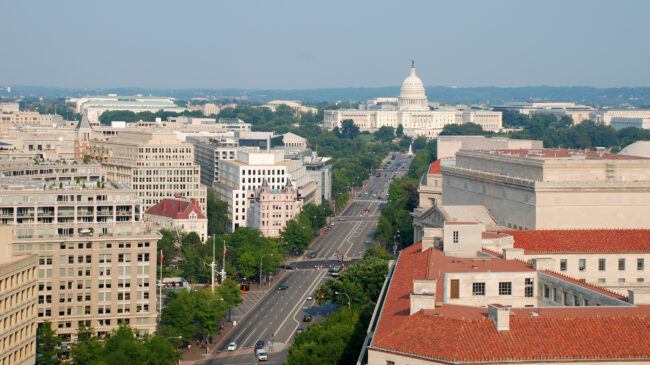D.C.’s proposed ban on flavored e-cigarettes has quietly transformed into an all-out prohibition on all flavored tobacco products, including menthol cigarettes.
Despite the dramatic shift in policy, the City Council apparently believes no further public engagement is necessary because it held a hearing on a different flavor prohibition back in January 2020. A lot changes in 15 months. Obviously, there’s been a global pandemic since that hearing, plus there are new city council members and the country is more focused on issues like overcriminalization that harshly impacts minorities, police reform, and ending the failed war on drugs.
The City Council refusing to engage with the public on a highly controversial measure that has significant social and criminal justice implications is not a promising sign. Public anger over police abuses is rightly manifesting into specific demands for reform of policing and the criminal justice system. Ending qualified immunity, civil asset forfeiture, and demilitarizing the police are all long overdue.
But these reforms don’t address the growing maze of laws that disproportionately affect Black Americans. Often promoted under the guise of benevolent paternalism, these laws principally concern behaviors and products considered low-status and harmful to health. Banning menthol cigarettes is one such law.
According to the American Civil Liberties Union, Black residents are disproportionately arrested or given citations for minor, nonviolent offenses. From 2013 to 2017, 80 percent of those arrested in D.C. for violating open container laws or publicly consuming marijuana were Black. The figures for noise complaints and gambling were 76 percent and 99 percent, respectively.
To prevent further overcriminalization, the flavor ban bill says enforcement will rest with the Department of Consumer and Regulatory Affairs, not the police. Sadly this doesn’t solve the problem. The police remain responsible for arresting those selling untaxed cigarettes. If the bill passes, all flavored tobacco products illicitly sold in the District will be untaxed. Those selling or purchasing these products are vulnerable to police interactions.
The vast majority of Black smokers use menthol cigarettes. Non-menthol cigarettes preferred by other groups are just as lethal as their minty counterparts but aren’t being banned. What’s more, according to the most up-to-date Centers for Disease Control and Prevention data, Washington, D.C.’s young people are less likely to smoke or vape than the national average. The same is true for adults in the District. This proposal is a solution in search of a problem.
Right now, only one state has a full tobacco flavor ban—Massachusetts, where prohibition went into effect in June 2020. In the following 11 months, the state lost more than $140 million in tax revenues from menthol sales alone. Eighty-eight percent of Massachusetts’ lost tobacco sales were made up for by increased tobacco sales in nearby Rhode Island and New Hampshire.
D.C’s projection that it will lose just $3 million in taxes by banning flavored tobacco products is a heroically wishful one. But, even so, lost tax revenue is just one risk of prohibition.
There’s also fundamental unfairness in banning a cigarette—menthols—overrepresented in one population while non-flavored cigarettes, which are equally deadly but used mainly by whites, remain legal. The illicit market that will undoubtedly arise from the prohibition of menthols and flavored products will also be concentrated in Black communities. If police enforce the ban, it means more policing in Black neighborhoods, which further heightens the chances of conflict and criminal penalties.
These concerns prompted civil rights groups, including the American Civil Liberties Union, to urge the Biden administration against a flavored tobacco ban because it would “disproportionately impact people of color, as well as prioritize criminalization over public health and harm reduction.”
On Maryland’s Ocean City boardwalk, four teenagers were recently violently arrested by police for allegedly breaking an ordinance against outdoor vaping. “Attorney General [Brian Frosh] can you please investigate these multiple incidents involving police and unarmed Black teens in Ocean City, MD?” tweeted Sherrilyn Ifill, the president of the NAACP Legal Defense and Educational Fund.
There are several high-profile incidents of police violence connected to tobacco bans. In 2014, Eric Garner died at the hands of the New York police because he was selling untaxed, loose cigarettes. In 2020, a California police officer was filmed punching 14-year old Elijah Tufono after a hand-to-hand cigar purchase. La Mesa police manhandled Amaurie Johnson, who was wrongly suspected of smoking on a trolley platform.
For the City Council to believe it can enjoy all the hypothetical benefits of prohibition without suffering any of the well-known costs is to engage in evidence-making where one starts with a preferred policy outcome and evidence is subsequently produced to support that policy.
Youth smoking is already falling and this ban isn’t needed. Information, incentives, and safer alternatives to cigarettes can achieve superior results without overcriminalization. The disparate and discriminatory consequences of paternalistic laws like a flavored tobacco ban may be unintended, but that doesn’t make them acceptable.

